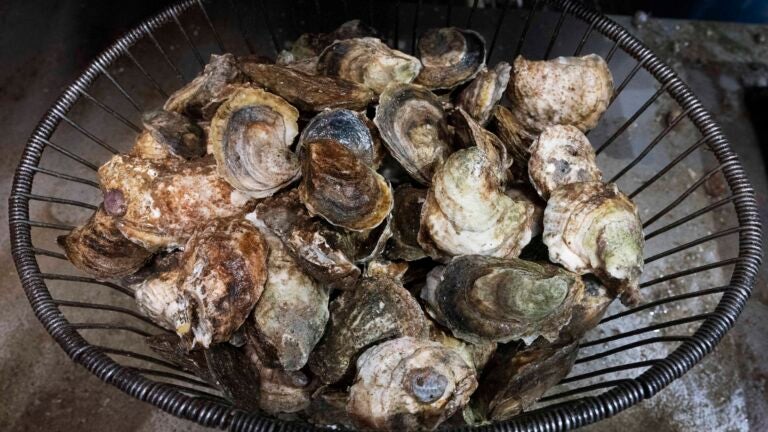Food News
The oysters, harvested from Lewis Bay in July, were distributed to several states, according to the FDA.
Potentially contaminated oysters from Massachusetts were recalled, and the Food and Drug Administration is advising restaurants and consumers not to eat the oysters that have been distributed to several states.
In a press release, the state Department of Public Health said oysters harvested on July 1 and July 3 from two sites in Lewis Bay in Cape Cod were linked to four cases of campylobacter illness, a bacteria that makes people ill with diarrhea and other symptoms.
Health officials in Massachusetts were notified about the cases July 18, and the state Division of Marine Fisheries closed the harvest area a day later to begin a growing area investigation.
Two state-certified shellfish dealers, Island Creek Oysters and Chatham Shellfish Co., initiated the voluntary recall on all oysters harvested from the site from July 1 to July 18. Boston.com reached out to the two companies for comment, but did not hear back in time for publication.
The potentially contaminated oysters had made their way to restaurants and retailers not just in Massachusetts, but also California, Connecticut, Florida, Illinois, Minnesota, Missouri, New Jersey, New Hampshire, New York, and Pennsylvania. The FDA said it’s also possible that the oysters were distributed to other states.
In an email, the public health department said it hasn’t received reports of cases in other states. Two more seafood dealers were impacted by the recall, but officials said the oysters weren’t distributed by any out-of-state dealers.
The bacteria, Campylobacter jejuni, is the most common cause of food poisoning, according to the Centers for Disease Control and Prevention. The contaminated food may not smell, look, or taste unusual, the FDA said, but it can cause illness if eaten raw and even be life-threatening to those who are immunocompromised.
Symptoms include diarrhea (often bloody), a fever, stomach cramps, nausea, and vomiting. Those infected by the bacteria can usually expect to be ill two to five days after eating the contaminated food, and symptoms can be present for a week.
Sign up for The Dish
Stay up to date on the latest food and drink news from Boston.com.
